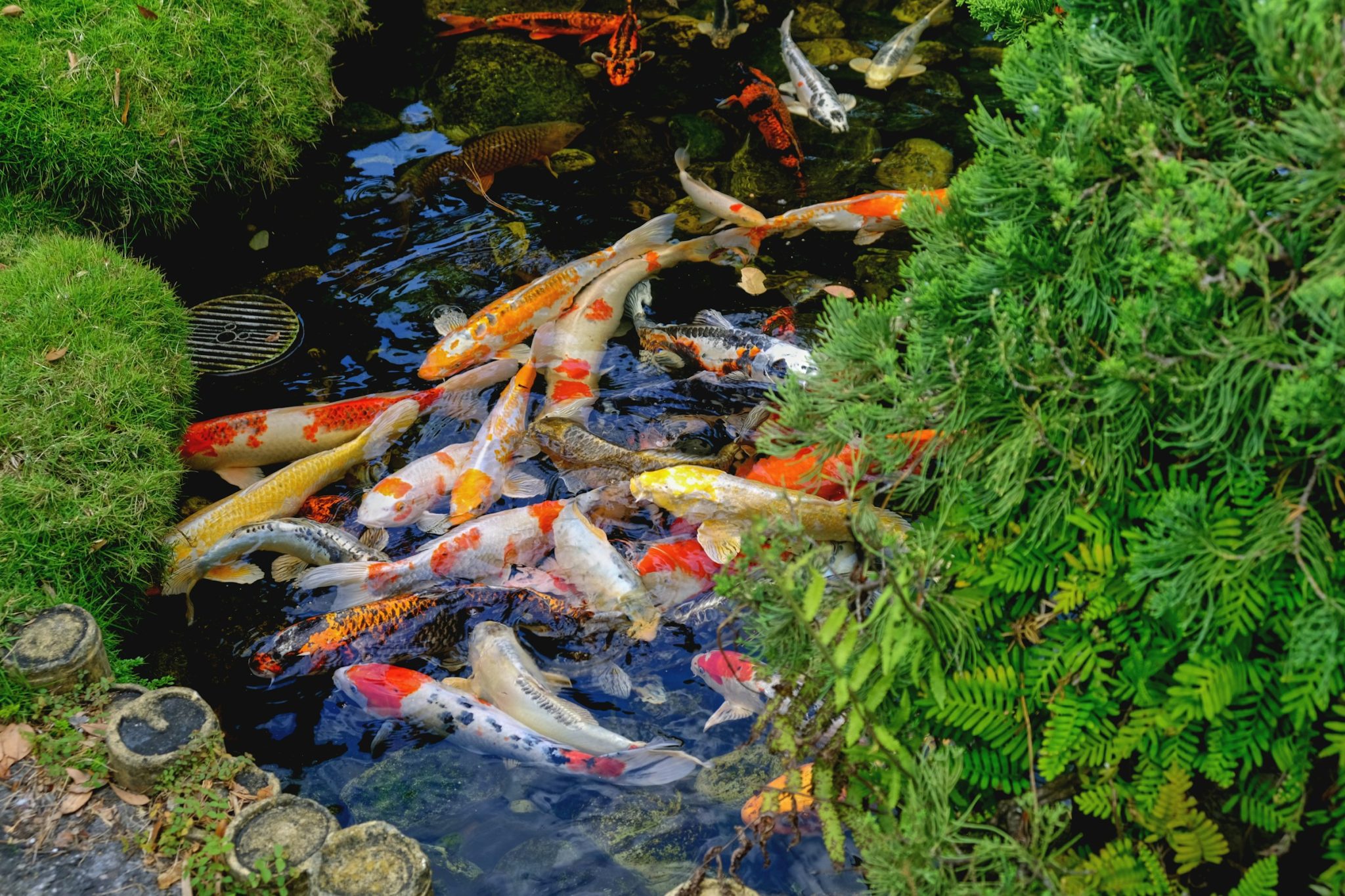Ensuring adequate nutrition is crucial for their health and happiness when caring for pond fish. Figuring out what to feed your pond fish can feel overwhelming for beginners, given the array of options on the market. This guide will delve into the types of food suitable for pond fish, their nutritional needs, and common mistakes to avoid.

Understanding Pond Fish Nutritional Requirements
Pond fish have needs that you must fulfill for them to thrive. A balanced diet is vital to keeping them healthy and showcasing their colors. Before delving into why you should buy pond fish food, it’s essential to grasp the requirements of pond fish.
1. Proteins
Proteins are essential for the growth and well-being of your pond fish. They play a significant role in maintaining muscle mass and repairing tissues. Opting for high-quality protein sources like fishmeal or shrimp should be a part of your fish’s diet.
2. Carbohydrates
Although carbohydrates are not vital in a pond fish’s diet, they offer an essential energy source. Some commercial fish foods contain fillers such as wheat or corn that can serve as carbohydrate sources.
3. Fats
Another crucial element for the diet of pond fish is fats, as they provide acids essential for maintaining healthy skin and scales. Seek out foods containing Omega-3 fatty acids sourced from ingredients like salmon or krill oil.
Varieties of Pond Fish Food
After grasping the requirements of your pond fish, let’s delve into the food options available:
1. Flakes
Flake food stands out as a commonly found choice in pet stores. It comprises crushed components blended with vitamins and minerals that float on the water’s surface when scattered into the pond. Flakes are ideal for medium-sized fish and offer a well-rounded diet.
2. Pellets
Pellets are another favored option for feeding pond fish of different species in various sizes. Pellets, known for their sinking nature, give the fish time to consume them before dissolving.
3. Live Food
You can give live food like brine shrimp or daphnia as a treat to supplement your pond fish diet. They provide an excellent source of nutrition packed with nutrients. Freeze-dried foods, like bloodworms or brine shrimp, offer various benefits but are more convenient to store and have a longer shelf life than their live counterparts.
Feeding Tips and Common Mistakes
To ensure your pond fish get adequate nutrition, here are some tips and common errors to keep in mind:
1. Feed moderately
Avoid overfeeding your pond fish, as it can cause health issues like obesity, bloating, and poor water quality due to waste. It’s best to feed them what they can eat in 2 to 3 minutes, then remove any leftover food.
2. Help them recognize you
Building a connection with your pond fish improves their eating habits and simplifies maintaining their aquatic environment. Train your fish to recognize you by feeding them at the times and places.

3. Offer a variety of foods
Just as humans enjoy meals, pond fish benefit from a balanced diet. Providing different types of food helps meet their nutritional requirements and keeps them mentally stimulated.
4. Check for stale food
Before feeding your pond fish, check the food for any signs of expiration dates. Using expired food for your pond fish could put them at risk of bacteria growth or lacking nutrients.
In Summary
It’s crucial to provide your pond fish with nutrition to maintain their health and well-being. Understanding their needs and selecting food options, like flakes, pellets, live food, or freeze-dried food, will help ensure they get a well-rounded diet. Remember to feed them in moderation, train them to recognize that you vary their meals, and always check for expired food. Following these suggestions, you can support your pond fish thriving in their environment with colors and overall vitality.
- About the Author
- Latest Posts
Whether she is researching the latest trends in home decor, life-changing destination getaways, or the best way to maintain your finances, Dewey takes pride in leaving no stone unturned. She is passionate about distilling and delivering high-quality information that you can use to upgrade your life.

